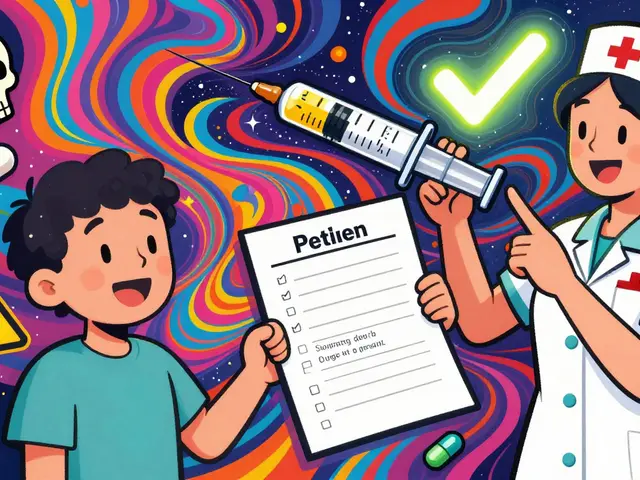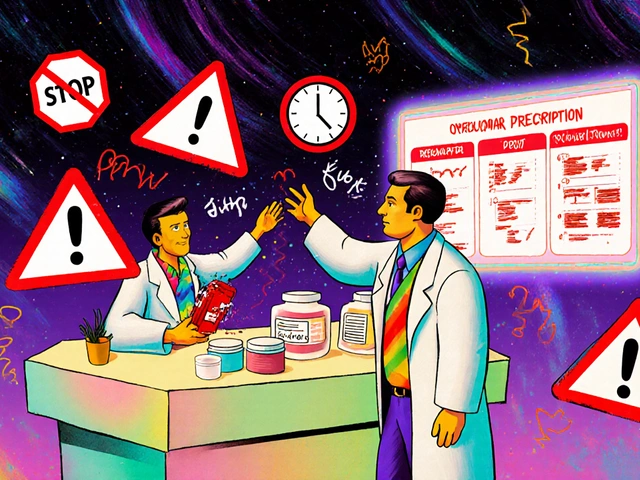Pregnancy Medication Guide – What You Need to Know
If you’re expecting, the first question that pops up is usually “Can I take this?” Whether it’s an over‑the‑counter pain reliever or a prescription for a chronic condition, you deserve clear answers fast. The good news is most common meds have well‑known safety profiles, and you can often keep taking them with a few simple checks.
First, look at the drug class. Doctors group medicines by how they work, and many groups are flagged as safe or risky for pregnancy. For example, acetaminophen (Tylenol) is generally considered low risk, while ibuprofen and naproxen should be avoided after 20 weeks because they can affect the baby’s heart and kidneys.
Common Concerns About Specific Medications
Antibiotics are a big question mark for many pregnant women. Most penicillins (like amoxicillin) and cephalosporins (such as cefdinir) are fine, but drugs like tetracycline can cause tooth discoloration in the developing baby. If you’re on an antidepressant, talk to your doctor about SSRIs such as sertraline; many are still used safely, but some newer options might need a switch.
Blood pressure meds also need attention. ACE inhibitors (like lisinopril) are off‑limits because they can harm the baby’s kidneys. Instead, doctors often prescribe labetalol or methyldopa, which have a long track record of safety. Diabetes drugs follow a similar rule: insulin remains the gold standard, while some oral agents require careful monitoring.
How to Choose a Safe Pharmacy
When you know a medication is okay, the next step is getting it from a reliable source. Look for online pharmacies that require a valid prescription and display a licensed pharmacist’s contact info. If a site sells “no‑prescription” versions of controlled meds, walk away – that’s a red flag.
A quick check: type the pharmacy’s name into your search engine with the word “review.” Real patient feedback often shows whether orders arrive on time and match the label. Also, make sure the URL starts with https:// – the extra ‘s’ means data is encrypted.
Pay attention to payment options too. Secure gateways like PayPal or credit cards give you an extra layer of protection compared to direct bank transfers. If a pharmacy offers price‑matching guarantees but asks for cash only, it’s probably not legit.
Finally, keep your healthcare provider in the loop. Send them a copy of the pharmacy receipt or the drug label you receive. A quick confirmation from your doctor can catch any mix‑ups before you start the medication.
Bottom line: pregnancy doesn’t have to mean giving up all meds. By checking the drug class, confirming safety with your clinician, and ordering from a reputable pharmacy, you protect both yourself and your baby while staying on treatment that works for you.
Meclizine and Pregnancy: Is it Safe to Use During Pregnancy?
As a pregnant woman, I've been wondering about the safety of using Meclizine during pregnancy. After doing some research, I found out that Meclizine is an antihistamine used to treat motion sickness and vertigo. While it is categorized as a Pregnancy Category B drug, meaning there have been no conclusive studies showing harm to the fetus, it is still important to consult with a healthcare professional before using it. Some doctors may recommend it if the benefits outweigh the potential risks. Always remember to prioritize the safety of our unborn child and consult with a medical professional before taking any medication during pregnancy.






